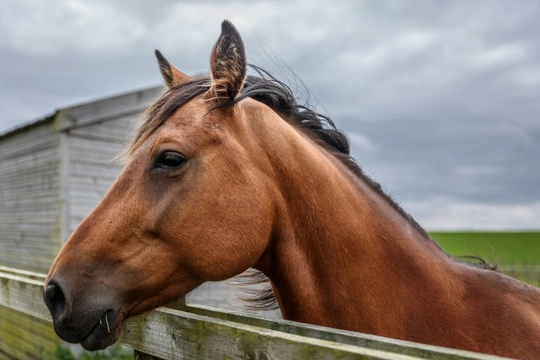
What you need to know about Equine Influenza
Equine Influenza is a hot topic at the moment after the recent suspension of UK horse racing by the British Horseracing Authority.
Equine Influenza is a highly infectious (meaning bacterial or viral) viral respiratory disease. It is also contagious which means it can be spread by both people and animals although there is no risk to human health. It is spread via contact through clothing or yard items but is also airborne and can travel a surprising distance in water droplets.
Symptoms include high temperature or fever, lethargy, cough, nasal discharge and loss of appetite.
Some key facts
- Horses are vaccinated annually for flu, biennially the vaccination is also combined with anti-tetanus, known colloquially as ‘flu/tet’
- Only 30% of the UK’s equine population is vaccinated against Equine Flu
- When they start a vaccination programme, horses are given a first vaccination followed by a second flu injection anywhere between 21 and 92 days later. A third injection follows at a six-month interval and then vaccinations are given annually from that final date
- Vaccinations are usually given in the neck. On occasion, horses will react to the injection developing a small lump at the site or a large reaction or just a very stiff neck. Some owners prefer therefore for the vet to vaccinate the horse in either the soft chest muscle or in the quarters. Most serums are only licensed for use in the neck so if you did want recourse against the pharmaceutical manufacturer then the site of the injection may be relevant
- Vaccinating horses against Equine Influenza is not mandatory in the UK, Equine Influenza is not a notifiable disease
- Scientists know that immunity wanes between the six and twelve-month point following vaccination
- Horses that have been vaccinated against Equine Influenza can still succumb to the illness, they will probably show milder symptoms and recover more quickly than an unvaccinated horse, some vaccinated horses show little signs of illnesses
- Young horses under the age of three are particularly vulnerable
- Horses are tested for the virus with a nasal swab
- There are herbal alternatives and remedies on the market but these are not recognised by the competitive governing bodies
Competition
- If you compete at unaffiliated events, there is no evident requirement to have a vaccinated horse. However, unaffiliated competition organisers usually borrow their rules from the disciplines such as British Showjumping or BS, British Eventing or BE and British Dressage or BD. It is a requirement under these competitive disciplines that horses have an unbroken history of vaccination. Any show organiser can, therefore, ask to see your horse’s passport to check whether it displays unbroken vaccination cover even at an unaffiliated event
- For competing under rules, a horse that is late by as much as one day is deemed to have lapsed and will need to start the entire course again
- Horses starting a course from scratch will not have the appropriate level of immunity until after the second of the three injections and should therefore not leave the yard
- Most competitions do not want a horse present within seven days of the administration of the annual vaccination
- Horses competing under international or FEI rules must have a flu booster every six months
- Most competition organisers and show centres reserve the right to ask to see all passports on arrival at an event or to spot check them. It is the law that a horse’s passport must be carried with him whilst he travels so your passport should be with you in the lorry or trailer in any event
- Spot checks are likely to increase in the light of the current outbreak, some events, particularly regional competitions, are only permitting entry to horses who have been vaccinated within the last six months so some horses will require a booster before they can be accepted at a competition
Take sensible precautions
- Vaccinate your horse and if current veterinary advice is to offer a booster to anything outside the six-month window then follow that advice
- Quarantine any horses that come into the yard for 21 days, this should be complete isolation with separate yard tools, feed bowl and grooming kit and a change of clothing before handling other horses
- Be aware of the signs and symptoms of flu, any horse or pony showing signs of the disease should be seen by a vet without delay
- Do not share equipment at an event, do not allow your horse to graze and avoid nose to nose contact with other horses
- Sensibly restrict movement where you can either on your yard or if you are going out competing
- A yard with a confined case of Equine Influenza should close
The current flu outbreak has been rumbling around other countries since the end of last year, Europe, Ireland and the USA. There is an epidemic of Equine Influenza in West Africa.
The British Equestrian Federation is currently advising that events do not need to be cancelled but this is ultimately down to the discretion of individual organisers and centres. The checks they may impose are entirely of their own choosing. The Animal Health Trust in Newmarket has been responsible for handling the sample testing on behalf of British Horse Racing and latterly, other cases. There is lots of up-to-date information on their website but your first port of call for any advice or concerns should always be your own vet.



